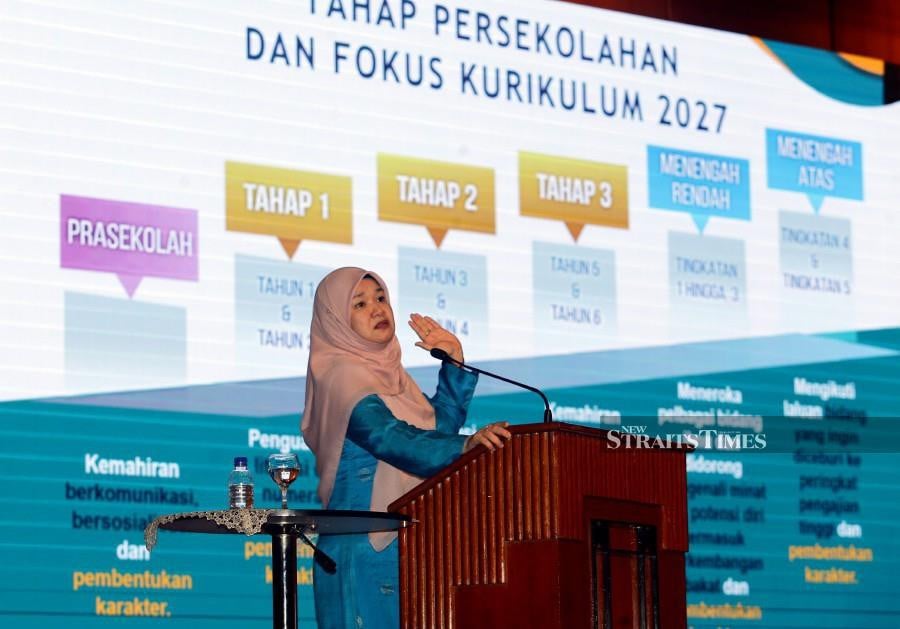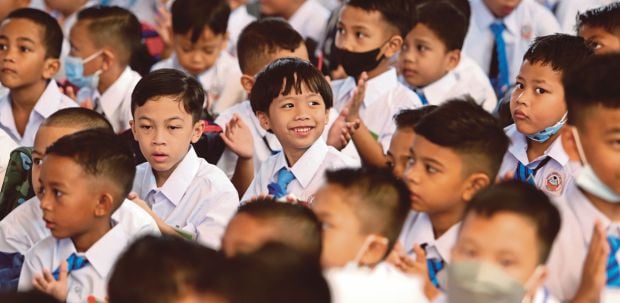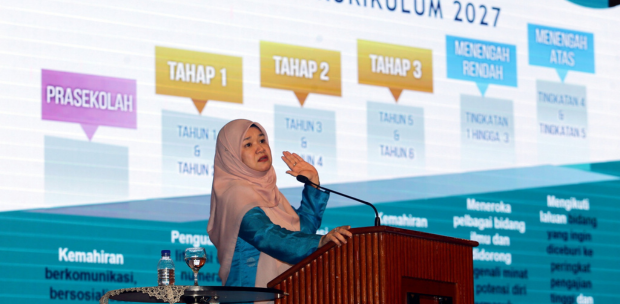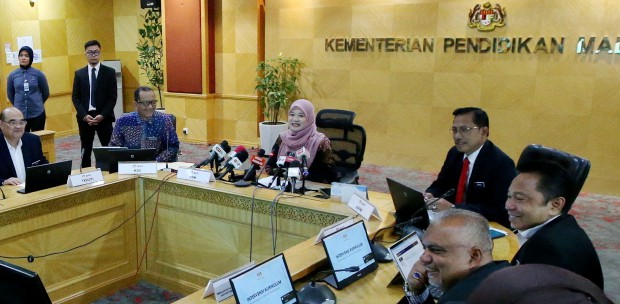PUTRAJAYA: The Education Ministry will introduce seven domains in the 2027 School Curriculum.
These domains are deemed capable of producing people who will be able to practise a balanced life.
Its minister Fadhlina Sidek said the seven domains are personal development, communication, responsibility, digital fluency, diverse literacy, thinking skills and lifelong learning.
Speaking at the School Curriculum Professional Discussion 2027 programme, here, she said that the domains have taken into account all elements across the curriculum and the six pillars within the framework of the Standard Secondary School Curriculum (KSSM) and Standard Primary School Curriculum (KSSR).
"The focus of learning and character formation in various disciplines will also be adapted to each level starting from preschool level up until the upper secondary education level, involving Form Four and Five students," she said.
Fadhlina said to make it easier for teachers to focus on learning in line with the maturity of the students, the level of schooling and the focus of the curriculum need to be rearranged.
"For that, primary education will be divided into three levels. This division is a new approach to the clarity of the main focus of learning.
"Primary Education Level I will involve groups of Year 1 and Year 2 students whose main focus of learning is the mastery of literacy and numeracy as well as character development.
"Pupils will go through entertaining learning experiences so that they are interested in following formal learning and motivated to come to school.
"Early intervention will be implemented to ensure students master literacy and numeracy skills," she said.
The Primary Education Level II, meanwhile, will involve groups of Year 3 and Year 4 students focusing on mastering the skills of applying knowledge to solve problems as well as character development.
"Learning at this level can be extended to things that are more challenging and require higher cognitive stimulation. Pupils at this level have the opportunity to learn and explore elements of TVET such as life skills, technology and digital earlier.
"Level III Primary Education will involve Year 5 and Year 6 students. It will focus on the mastery of analytic skills and producing innovative ideas. The learning process also focuses on improving cognitive ability and character development. This level will prepare the students for high school," she said.
At the Secondary Education level, Fadhlina said, Form 1 to Form 3 students will be allowed to explore various fields of knowledge and are encouraged to recognise their interests and potential including talent development and character building.
"Upper Secondary Education, involving Form 4 and 5 pupils, will create a path in the field they want to pursue at the higher education level.
"The focus of learning and character building in various disciplines will also be deeper and broader. Pupils are also introduced to work experience through apprenticeships," she said.
She added that the preschool curriculum will be developed with a focus on producing students who can communicate and socialise confidently as well as have loving, resilient, problem-solving and eagerness to learn.
"Through the method of playing and exploring, students will gain a meaningful and enjoyable learning experience.
"As an initial preparation, students will continue to be given space for learning in Malay and English."
Fadhlina said that the 2027 School Curriculum will strengthen the implementation of classroom-based assessment.
"This assessment aims to identify student strengths and weaknesses and how teaching and learning can be modified to improve student mastery.
"The teacher will evaluate the learning process that the students go through holistically to help them improve their ability and potential in the given task. The focus is no longer on task results alone.
"This way, the teaching and learning process will be more flexible, fun and meaningful for teachers and students," she said.
In terms of implementation, Fadhlina said that the 2027 School Curriculum will be implemented in stages, starting with Year 1 and Form 1 in 2027.
"For preschool students, the new national curriculum will be introduced starting in 2026.
"However, the elements in this new curriculum will be thoroughly discussed, debated, detailed, and reviewed through the Future Education Tour Program and targeted engagement sessions in the near future," she said.





